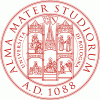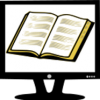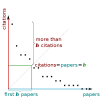Opinions
Why opinions and why in English?
I am starting to feel that it is time to let others know my thoughts on what I believe are relevant issues (not necessarily important). For this reason, I decided to include a section in my web site where I would like to collect my opinions.
This page shows (not necessarily) short articles delivering my views on academic issues, research challenges, my experiences as journal editor, department chair and evaluator of scientific impact. My opinions will not be confined to my professional activity. It may happen that I write on sporting activities, my climbing trips and my runs, my skiing days or whatever. I would like to be informal, I hope readers may forgive me if sometimes my pieces will be a bit naive. It may happen that I write after drinking a (lot of) glass(es) of good Italian wine.
I decided to write my opinions in English. In the Italian version of my web site I will translate this introduction, but not the text of the opinions. There are several reasons for this choice. First, my will is to mainly write on research and academic life and I feel that English is the most appropriate language in this context. Furthermore, learning English is still a remarkable effort for me. Therefore, writing in English is a kind of personal challenge that I wanted to take. Finally, I am essentially a shy person and therefore it is easier for me to write my personal opinions in a non-native language.
I hope you may enjoy the readings below!
Cheers,
Alberto
Lectures in streaming from March 2nd 2020 - An excellent result
On March 2nd the University of Bologna will gradually make lectures available in streaming. The emergency induced by COVID-19 at the global level, and in particular in the Emilia-Romagna region in Italy, has suggested the use of streaming to overcome the barriers to traveling in some regions and countries.
Irrinet/Irriframe: an example of successful smart irrigation
Irrinet/Irriframe, along with Acquacampus, is an interesting experience in Italy for optimising irrigation.
Statistics of the videos of my lectures
In Spring 2012 I took the decision of regularly posting videos of my lectures in my YouTube channel (lectures are collected into playlists). I realized that it is relatively simple to bring in the classroom a camera with a tripod (which I bought myself because the university could not justify such expense), and it is actually straightforward to upload the videos soon after the lecture.
The citation by Guenter Bloeschl at the Darcy Medal Ceremony
During my Darcy Medal ceremony my citationist was Guenter Bloeschl. I am very grateful to Guenter for delivering a very flattering citation, which I am copying here below (with Guenter's permission). During my career I had the fortune to meet amazing colleagues, at the University of Bologna, in the Italian community of hydrologists and engineers, and the scientific associations I am member of. In particular, I shared many research collaboration with Guenter and Demetris Koutsoyiannis.
Interactive learning is a must!
In the Spring semester 2018 I decided to mark a step forward to interactive learning which, according to Wikipedia, means the incorporation of "social networking and urban computing into course design and delivery". Actually, I have been using these tools for delivering my lectures for several years already and therefore I would like to say that interactive learning means some more to me.
My first experience as National Sporting Team leader
Last year it happened that I was elected Council Member of the Italian Athletics Federation, that is the institution in charge of coordinating the activities of the athletics teams operating in Italy and preparing the national teams for international competitions like the Olympic Games. I had previous experience as team manager and manager of regional committees of the federation, but it is the first time that I am involved at the national level.
Towards a new form of academic learning
We know well that the world is rapidly changing. What is really amazing is the pace of change of society and human attitudes. We behave and work every day according to styles and habits that we could not predict a short time ago. Twenty ears ago we were living without cellular phone, without (or very limited) use of email and internet, and therefore without social networks. Today we hardly remember how our life was at that time. The availability of technology radically changed our life style, and I think this change is positive.
Water bombs
In Italy, we are being hit by water bombs. I think I need to explain what this term means. "Water bomb" is a literal translation from the Italian term "bomba d'acqua" which started to be used in Italy some 3-4 years ago, and it's increasingly used to indicate an extreme rainfall event. The latter is characterized by unusual rainfall intensity, and therefore there is the feeling that such extreme events did not occur in the past, or occurred with much less frequency than today.
- Read more about Water bombs
- 69 views
Bibliometrics: Columbus' egg?
About 10 years ago the use of bibliometrics to evaluate scientific publishing and academic merits became more and more popular, for the increasing need to objectively evaluate research achievements. After the widespread diffusion of modern communication facilities, the scientific community increased in size and the number of published papers increased as well. Therefore, funding agencies, academic institutions and the scientific community in general felt that it was necessary to measure the value of scientific achievements by adopting systematic and coherent solutions.









